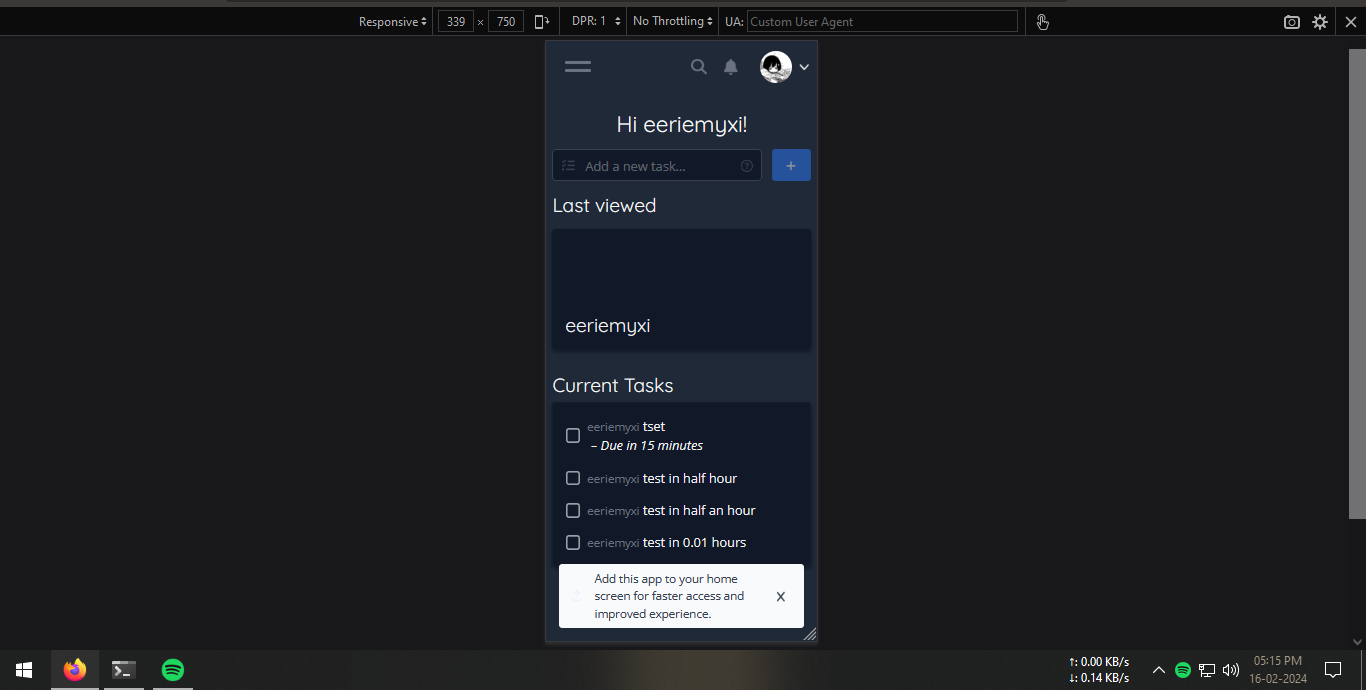

They said competition, not alternatives. As things are right now, and knowing people, not just trying to make a technical point, Firefox is the only competition.
A computer science enthusiast.


They said competition, not alternatives. As things are right now, and knowing people, not just trying to make a technical point, Firefox is the only competition.
not a fan of that font, but cool setup


I actually meant Group Policy Editor. Sometimes I make mistakes like that. I will not dive into how precisely I made the mistake.
Coming to your second point, of course it is vulnerable, but I meant it in a practical sense. I am not here to waste time debating, so I am leaving it at that.


[—]


I don’t think they would make a model like this uncensored.


It was a decent experience, but it had too many features to meet my taste. I like basic things. Their automatic timer detection supports a lot of formats, but it doesn’t support something like “in 5 minutes,” but it does support “in 5 hours/months/weeks.”. Too bad, I frequently forget to do things throughout the day, so I have trained myself to set up quick-to-do tasks to remind myself a few minutes later. But doing it an hour later is asking for too much.


It’s available on smart phones, but you have to install it as a PWA.



stract.com has their own indexer, fully open-source.
We have estimated the carbon footprint of our AI chatbot and according to our first estimates it does not significantly increase the overall carbon footprint of Ecosia. The estimate takes into account that Ecosia searches are already 200% carbon negative,as we produce twice as much energy as is consumed by our search engine. We are currently working with two universities to refine our carbon footprint assessment.
Unfortunately the more important issue is that the leading language AI model providers are still not transparent about the energy consumption of their models, so without this clarity we can only make rough estimations of our impact. We will continue to monitor our energy usage and urge leading AI companies to do the same and be transparent about their impact.
(https://ecosia.helpscoutdocs.com/article/534-ecosia-chat-ai)
I am not against it. I don’t want to miss out on AI to support this search engine. It’s quite helpful to me, and I assume many others. I think this search engine should compete with other search engines so that more users use it. I am already a fan of their Ecosia Chat; the interface is fast and the responses are even faster. Bing Chat is just awful; it’s slow both in terms of interface and text generation
“send a patch via mail” process.
I don’t see a problem with it. I don’t know what tools you use, but the current process certainly isn’t ancient. Even if I use GitHub or something else, I still highly depend on my e-mail to actually know somebody published a patch and if I am supposed to review it. I don’t have to use a GUI coupled with shitty UI decisions. E-mails are very simple in their own way and I don’t find it ancient or bad.
The program itself isn’t really bigger, what makes the difference is that it won’t use the dependencies installed by your native package manager, it will download them, it also will download various runtimes if needed for the program, these runtimes are not really supposed to be ran if you compile the package yourself for your distribution, but if you use Flatpak, it is going to run all these runtimes for the program to work, these runtimes will use more RAM than the native build, if the runtime is not optimised, then it will also contribute to higher use of CPU and everything else in general.
It will differ from program to program, but I’ll let you know that I have natively compiled EasyEffects (real-time audio manipulation) and also have tried the Flatpak build. The native version hardly uses more than 5% CPU, and is also lightweight in terms of RAM. But the Flatpak build took significantly more RAM usage and my CPU went 80% whenever I played music with the same preset that I tested on the native build. Flatpak also had to download 700-900 MB worth of internet (no idea how much space it took after installation) for the program to run.
Flatpaks are slow and take more resources. It is only useful for the riches who can afford 16 GB+ RAM and TBs of storage.
Manjaro Linux is Arch Linux based. Manjaro and Arch relation is like Ubuntu and Debian relation.
Manjaro has its own set of issues that you may want to stay away from.
Edit: Ignore this comment, the image was loaded late. I thought it was a genuine question.
I turn off LSPs during my train of thoughts. I don’t want all red and yellow underline bullshit to disrupt my thoughts. Like, calm the fuck down. I WILL write the correct code eventually; just give me some fucking time.
Well, I use Neovim, so turning off the LSPs or restarting them is sufficiently simple.
When I work on a new project, or on a new feature, I temporarily turn off the LSP, and rely on the compiler to figure out where the code errors. Plain white text gives me the freedom to write whatever the fuck I want without any disruption. Of course, I eventually turn on the LSP again to fix the little issues.